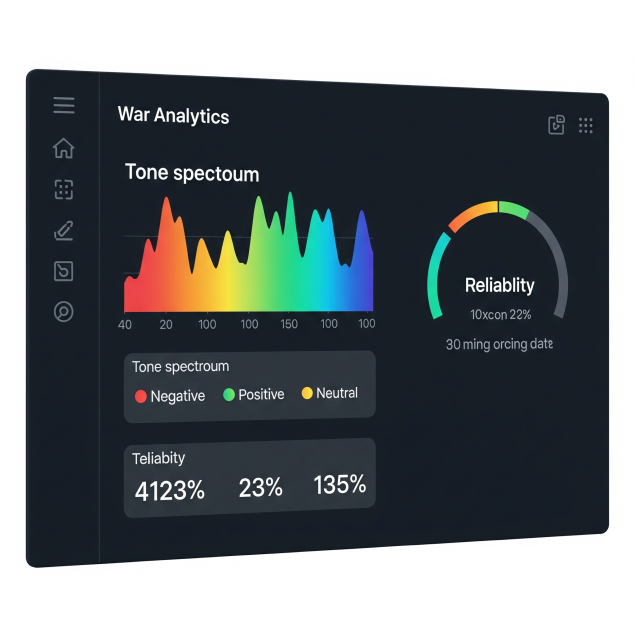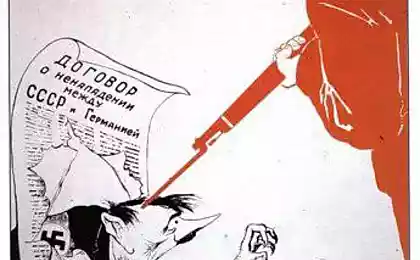169
Who among the sources on the war in Ukraine is trustworthy - based on the theory of emotional tone

In a world where truth is drowning in information noise and manipulation has become a tool of politics, the central question is: believe? Especially if you are a citizen of Ukraine living in a war, an unstable economy and a flood of propaganda on both sides. How do you know who is honest and who is controlling your attention? The answer can be found in an unexpected place, in the writings of L. Ron Hubbard, the founder of Scientology.
The scale of emotional tones: a tool for assessing truthfulness
According to Hubbard, every person has an emotional tone, the dominant state through which they perceive and communicate with the world. This is not just a mood, but a whole vibrational frequency by which you can determine how honest a person is, capable of constructive thinking or prone to destruction and deception.
People in 3.5-4.0 (interest, enthusiasm, intelligence) are most likely to tell the truth. Tones below 2.5—hidden hostility, fear, apathy—indicate a tendency to lie, manipulate, and destroy.
Who is telling the truth about war, Ukraine and the future?
We conducted an analysis of key figures – bloggers, analysts and military experts, most famous in the Ukrainian information space, and correlated their manner of speech with the theory of emotional tones. Here's what happened:
1. Roman Svitan - the voice of reason
Retired colonel, military expert. Tone: Reasonability (4.0). Calm, verified style, lack of aggression or panic. Predictions are often accurate. High confidence.
2.Yuri Butusov – chronicler of chaos
Editor of Censor.NET, an active participant in military discussions. Tone: Enthusiasm/Interest (3.7-4.0). Sometimes it goes into emotional heat, but rarely - in aggression. Information is often valuable. High confidence in filtering emotions.
3. Oleg Zhdanov - front engineer
An analyst with a military mindset. Tone: Reason/calmness (3.9). Not amenable to hysteria, regularly makes cartographic reports. Recommended as source.
4. Alexey Arestovich - Master of words
Orator, thinker, provocateur. Tone: Gaming (3.3). This is not a low tone, but requires filtering. Hubbard pointed out that in this tone a person plays communication, but not always sincerely. Useful for analysis, but not as an absolute source.

5. Michael Weller, philosopher of destruction
Writer, publicist. Tone: Antagonism / Hidden Hostility (2.3–2.8). Despite his intelligence, his manner is destructive. Weller often speaks out of contempt, irritation, or rage. Truth can be extracted, but only with a filter.
6. Michael Nucky - mirror interlocutor
Journalist interviewing Ukrainian and Western analysts. Tone: Interest / Reasonability (3.8). He knows how to be neutral and asks the right questions. Reliable source while keeping distance.
7. Kristo Grozev (Bellingcat) - Pathfinder
An international investigator. Tone: Facts / Tranquility (4.0). He only operates on data. The highest level of credibility.
8. ISW (Institute for the Study of War)
English-language think tank. Tone: Factology (4.0). Only map, analysis, current position. It is recommended as a neutral guide.

How can this knowledge be applied in practice?
- Listen to 2-3 sources in high tone (3.5-4.0) is a reality filter.
- Do not draw conclusions from speech in tones of anger, fear, antagonism – this is manipulation.
- Ask yourself a question: What does this man want to bring to me? Fear, hope, panic, action?
Truth begins where fear ends and reason begins.
Interpretation of the Hubbard Tone Scale
Glossary
- Emotional tone: A condition that determines the level of truthfulness and behavior of a person. From apathy to enthusiasm.
- Hubbard scale: The scale from -40 to +40, where each stage describes the emotional and ethical position of the individual.
- Reasonable: One of the highest tones, indicating objective thinking and truthfulness.
- Hidden hostility: Disguised aggression, often accompanied by manipulation.
- Tone of play: The tone in which a person plays with words and attention may be artistic, but not necessarily honest.
- Fact: A style of presentation based on facts without emotional coloring.
Conclusion
Being a survivor means not only having information, but also being able to do it. rate. Thanks to the Hubbard scale, we can not just listen, but hear. This is real freedom.
7 Reasons Why You Are Afraid to Start Changing Your Style
How to go against the opinion of loved ones when making an important decision and not spoil the relationship with them























